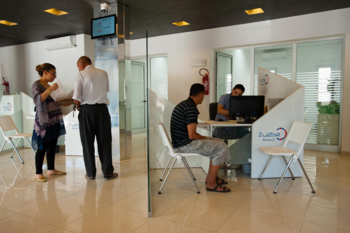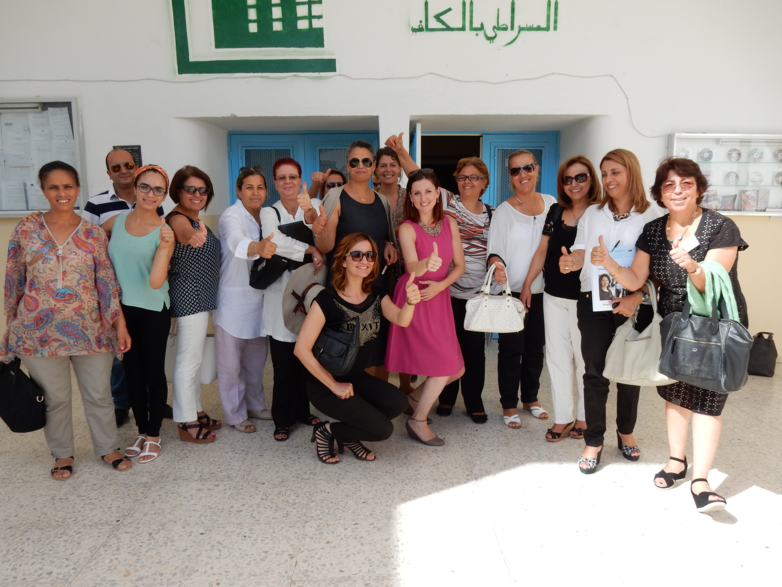Context
Tunisia’s rapidly growing towns, cities and municipalities are often characterised by a housing shortage, informal development, environmental pollution and social tensions. And since the 2011 revolution, the country has been undergoing an extensive democratic transformation. The Tunisian people expect municipal authorities to be transparent, accountable and citizen-oriented, with opportunities for participation.
However, in the structurally weak interior regions in particular, democratic change has barely made an impact. Moreover, women and young people have so far made only scant use of their political and civil rights. Citizen-oriented and efficient municipalities and a constructive relationship between administrative authorities and citizens based on trust are therefore of vital importance for the country’s further development.
The first free municipal elections held in May 2018 were a significant step towards stronger municipal self-government. A new local Authorities Code that governs the decentralisation process also gave municipalities new powers. This offers huge opportunities but also poses new challenges for local democracy.
Objective
Transparency, citizen-orientation and opportunities for participation in local affairs have been improved in Tunisia.
Approach
The project supports employees from ministries, the Tunisian Municipal Association and local authorities in establishing service- and citizen-oriented and transparent working practices.
It also advises representatives from women’s and young people’s organisations on how they can make their demands and ideas heard more effectively and thus help shape political decisions. This gives women and young people a greater say in local politics and, as a result, builds trust between citizens and municipal authorities.
Citizens’ offices are being set up in selected municipalities to improve municipal services. The project also promotes the efficient organisation of municipal administrative processes through in-service training and supports initial and continuing training for municipal employees.
The project has been supporting digitalisation in partner municipalities since 2019, with municipalities getting support to develop municipal services (e-services) and digital participation formats (e-participation).
The project is part of a special initiative designed to stabilise and promote development in North Africa and the Middle East run by Germany’s Federal Ministry for Economic Cooperation and Development (BMZ). Through this special initiative, BMZ is helping to create economic and social prospects for people in the region. More than 80 additional development projects are being implemented between 2014 and 2024. The focus is on promoting youth and employment, economic stabilisation, democratisation and stabilising neighbouring countries in crisis situations.
Results
Results in figures
- 29 municipalities have started implementing youth action plans that have been developed in collaboration with active youth and local associations. Prioritised activities such as youth internet radio stations, citizen labs and digital applications are being implemented jointly with the municipalities and local stakeholders.
- In addition, women’s networks have been set up in five cities. 150 women have been involved as multipliers to encourage other women to participate in the municipal elections. Working with the Federation of Tunisian Cities, the project has developed a network for women in local politics.
- In 12 cities and municipalities, the project is working with the National Federation of Tunisian Municipalities (FNCT) and the Government of Tunisia’s e-governance department on developing and supporting action plans for the implementation of the Open Government Partnership.
- Citizens’ offices have been opened in 15 municipalities to date, potentially benefiting around 808,000 people. Citizens are increasingly satisfied with the municipal services, and they have easier access to them: 85% of the citizens are satisfied or very satisfied with the municipal services in municipalities with citizens’ offices – as against 20.5% of surveyed citizens in municipalities without citizens’ offices. Further citizens' offices are in the planning stage.

